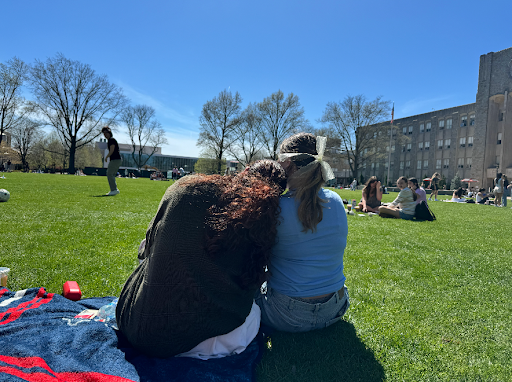
Let’s face it. As a college student, balancing classes, work, homework and producing a freshly homemade meal every single night is not an easy feat. Some students don’t get home until late at night, leaving minimal choices for dinner. However, there are many tactics that a college student can utilize in order to transform cooking from an expensive, dreaded act to an affordable, delicious and easy feast.
Create a Weekly Menu

Writing out a weekly menu will make the daily, grueling decision of what to make for dinner much easier. Many students come home, flounder for meal ideas and eventually decide to spend excess money on ordering food. Not only can students save money through meal planning, but they can also gain a more diverse palate in the process.
Planning dinners at the start of the week is a beneficial tactic because it allows for some allotted brainstorming time to help students avoid eating the same bland meal over and over again. Whether you improvise and add ingredients while cooking, follow a recipe or throw a personal twist on an online recipe for a simple dish, meal planning can allow for this time of cooking to be fun and experimental.
Don’t Shop Hungry

It is not usually a good idea to go to the supermarket with an empty stomach, as explained by Healthline; this easily causes “octopus arms,” as buyers grab whatever item looks appetizing to them at the moment. Going food shopping with a full stomach will help students remain on the right track with their ingredients and spending.
The avoidance of impulse buying every delicious-looking item in the store can decrease your grocery charges, which is extra hard-earned money that could be used elsewhere. Additionally, an itemized list is a great way to not veer off track, allowing you to not only have guidelines on what ingredients to search for, but to also help remember everything you need to buy.
Collect Coupons

There are many sales when purchasing food that are commonly overlooked, including buying in bulk and two-for-one sales. However, college students cannot afford to ignore these discount offers, and there are many more offers than are advertised. Student discounts do not just apply to streaming services; some restaurants have these, but don’t advertise them.
So, before going out, research special offers and vouchers. Websites such as The Krazy Coupon Lady, Rakuten and RetailMeNot are just some of the many sites offering online discounts. When going out to eat and you do not finish your meal, take home what was not finished! Chances are, there will be delicious leftovers for the next night, making the most of what you spent on the meal in the first place.
Meal Prep

Different from menu planning, meal prepping is a great way to save time during a hectic week! Meal prep involves making several servings of the same meal, packaging it up and being able to grab a meal without having to cook it on the spot. Having a collection of well-balanced meals is extremely important to keep energy and focus at a high.
By meal-prepping, say, on a Monday night, students can ensure that they have food at the ready. This tactic can also be made easier by purchasing pre-prepped food, further saving time and money. For example, buying a pre-cooked rotisserie chicken for meal prep will save students the hassle of cooking the chicken, as well as saving from purchasing chicken pieces daily. Meal-prep allows students to either eat the food at home or even bring it with them to a late-night class or study session.
Investing an hour at the start of each week to focus on future meals can ensure an increase in diverse, simple and inexpensive dinners. Whether it be buying pre-cooked food or creating a weekly menu, every college student can use these tactics to make sure they are fueling their bodies to keep themselves energized during the semester!

















